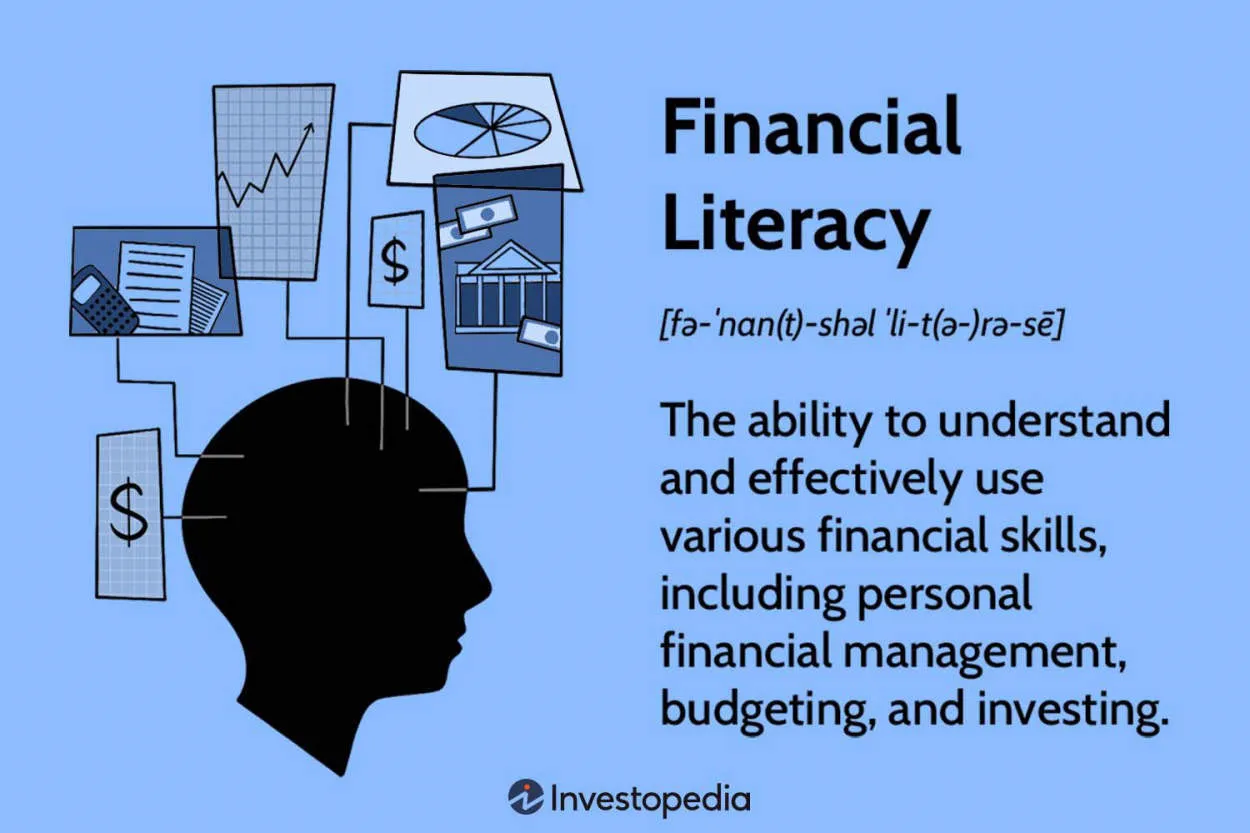Financial literacy is an essential skill for business professionals. In today’s complex world, understanding financial concepts and being able to make informed decisions is crucial for success. This article explores the importance of financial literacy and provides insights into key strategies for improving financial knowledge within the business world.
Understanding Basic Financial Concepts and Terminology
Financial literacy is an essential skill for business professionals. Having a solid understanding of basic financial concepts and terminology can greatly contribute to making informed financial decisions and managing business finances effectively.
Here are some key concepts and terms that every business professional should be familiar with:
1. Assets and Liabilities
Assets are things of value that a business owns, such as cash, inventory, and property. Liabilities, on the other hand, are the debts and obligations the business owes, such as loans and accounts payable.
2. Revenue and Expenses
Revenue refers to the income generated by the business through sales or services provided. Expenses, on the other hand, are the costs incurred by the business in order to generate revenue, such as salaries, rent, and utilities.
3. Profit and Loss
Profit is the positive financial gain a business makes after deducting expenses from revenue. Loss, on the other hand, refers to the negative financial result when expenses exceed revenue.
4. Cash Flow
Cash flow refers to the movement of money into and out of the business. It is important to monitor cash flow to ensure that there is enough money coming in to cover expenses and meet financial obligations.
5. Financial Ratios
Financial ratios are tools used to analyze a business’s financial health and performance. Common ratios include the current ratio, which measures a business’s ability to pay its short-term debts, and the return on investment (ROI), which measures the profitability of an investment.
By understanding these basic financial concepts and terminology, business professionals can gain better control over their finances and make informed decisions for the success of their business.
Managing Personal and Business Finances Effectively
In today’s competitive business environment, it is crucial for business professionals to possess strong financial literacy skills. Being able to effectively manage both personal and business finances is essential for long-term success. Here are some key strategies to help business professionals become financially savvy:
- Create a Budget: Start by creating a detailed budget for both personal and business expenses. This will help you track your income and expenses, identify areas where you can save money, and ensure that you are living within your means.
- Separate Personal and Business Finances: It is important to keep personal and business finances separate to maintain clarity and avoid any legal or tax issues. Open a separate bank account and credit card for your business, and stick to using them exclusively for business-related transactions.
- Monitor Cash Flow: Regularly monitor your cash flow to ensure that your business is generating enough revenue to cover expenses and remain profitable. This will allow you to spot any potential cash flow problems and take proactive measures to address them.
- Invest Wisely: Seek professional advice and invest your personal and business funds wisely. Diversify your investments and consider potential risks and returns before making any investment decisions.
- Stay Informed: Keep up-to-date with financial news, trends, and regulations. Attend workshops, seminars, or webinars to enhance your financial knowledge and stay informed about potential opportunities or risks that may affect your personal or business finances.
- Plan for the Future: Create both short-term and long-term financial goals for personal and business growth. Set aside funds for emergencies, retirement, and expansion. Having a clear plan will help you make informed financial decisions and stay focused on achieving your financial objectives.
By managing personal and business finances effectively, business professionals can optimize their financial resources, minimize risks, and increase their chances of achieving long-term success in their careers and ventures.
Investment Strategies for Long-Term Financial Growth
In today’s fast-paced business world, financial literacy is crucial for professionals to make informed decisions and secure long-term financial growth. As business professionals, it is essential to understand and implement effective investment strategies. Here are some key strategies to consider:
-
Diversify your portfolio:
Spreading your investments across different asset classes such as stocks, bonds, and real estate can help reduce risk and maximize potential returns.
-
Invest for the long term:
Long-term investing allows you to ride out short-term market fluctuations and benefit from compounding returns over time. It is important to have a well-defined investment plan and stick to it.
-
Consider index funds:
Index funds offer broad market exposure and often outperform actively managed funds due to lower fees and consistent returns. They are a popular choice for passive investors.
-
Regularly review and rebalance:
Monitor your investment portfolio regularly and make necessary adjustments. Rebalancing involves selling overperforming assets and buying underperforming ones to maintain the desired asset allocation.
-
Avoid emotional investing:
Emotional decisions often lead to buying high and selling low. Stay disciplined and focus on your long-term investment goals regardless of short-term market fluctuations.
By implementing these investment strategies, business professionals can improve their financial literacy and pave the way for long-term financial growth. It is always recommended to consult with a financial advisor to tailor these strategies to your specific financial goals and risk tolerance.
Conclusion
In conclusion, financial literacy is crucial for business professionals in order to make informed decisions, manage finances effectively, and navigate the complexities of the business world. By gaining a solid understanding of financial concepts and skills, professionals are better equipped to achieve long-term success and contribute to the growth and sustainability of their businesses.




